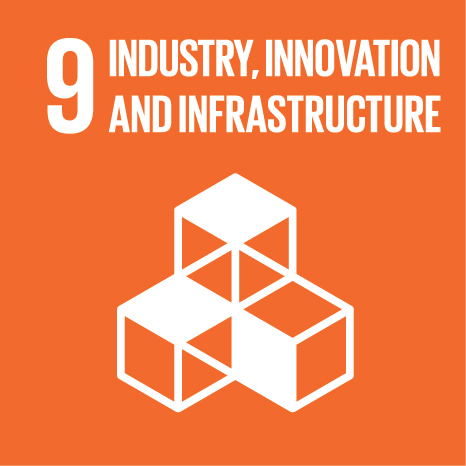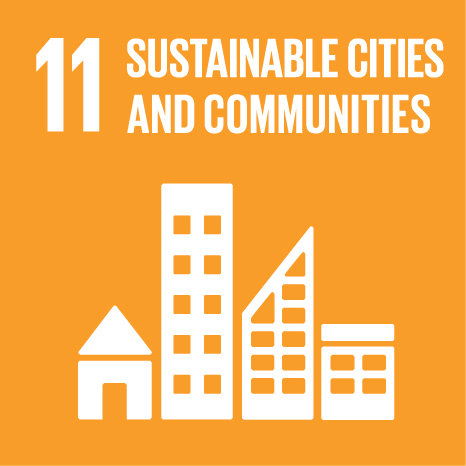3D Printing for Housing
Realizing the dream of sustainable, affordable housing
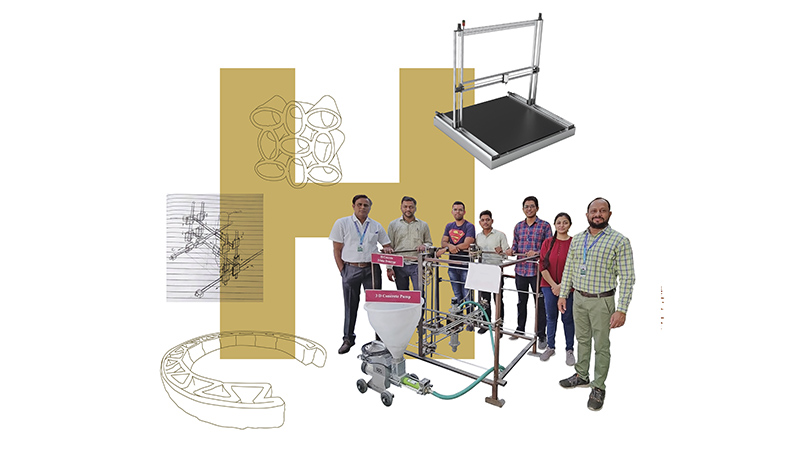
Building affordable housing is a global challenge affecting many countries. The shortage is especially severe in India, where the government has announced a Housing for All by 2022 initiative to address the issue. Now, the use of 3D printing technology in the field of concrete house construction is making it possible to quickly build affordable, portable and sustainable housing using this new, industry-transforming technology.
By using concrete to construct homes with a 3D printer, building expenses are approximately 15 percent less than traditional, wood built homes. There are significant savings in terms of material waste too. Moreover, construction takes less time, with projects often completed in less than six months, versus in 6 to 12 months when using the industry’s standard building practices.
Enabling engineers to graduate with new skills about this technology is a game changer for India: Indian students can now take a course dedicated to this topic, and then apply their knowledge when working in the construction industry. La Fondation Dassault Systèmes proudly supports the Pimpri Chinchwad College of Engineering (PCCOE) and the Thapar Institute of Engineering Technology for creating a roadmap for this transformation to happen.
“Applying 3D printing technology in the concrete construction domain is a revolutionary change for the industry, as it will greatly reduce both the costs and the design time,” states Hemant Gadgil, Managing Director of La Fondation Dassault Systèmes in India. “By developing detailed curricula to train aspiring engineers, and establishing a fully functional set-up for virtual and hands-on learning, we aim to empower students to be ready with future skills. This is one of La Fondation Dassault Systèmes’ purposes”, he continues.
Actually, there are three parts of this project underway:
- training engineering students with innovative learning content
- a hands-on experience easing the use of a 3D printer
- the development and set-up of a 6-axis robotic-based 3D printer for construction.
Innovative learning content
PCCOE is developing specialized courses on 3D printing to help students to learn 3D printing technology, processes, materials and techniques for the construction industry.
An emphasis on project and simulation teaching methods helps students learn through “what-if” analysis and simulation scenarios. This will be the first course in India dealing with 3D concrete printing for construction purposes.
Working on developing 3D concrete printing techniques and optimizing the nozzle and pump designs using virtual twins has given us a great leap forward in research and development. It has greatly helped our students to better understand the mechanisms, work on innovative ideas, and get hands-on experience. La Fondation Dassault Systèmes India has supported us in this project both technically and financially, and their support has opened us to global avenues and resources.
Easing access to 3D printers
PCCOE is also implementing a 3D printer design project, which will be built onsite and provides an opportunity for hands-on learning. Students from the Civil, Mechanical and Electronic engineering programs can practice using the new technology, enabling them to develop the right skills to work in the concrete construction industry.
The device will be able to 3D-print various wall sections and 4 by 4 meter wall blocks.
Students will analyze and study the effects of the type of cement, various additives and filler elements on cement buildability and resultant strength, as well as the ease of 3D printing.
Pimpri Chinchwad’s 3D printer is only the second one available throughout all academia programs in India.
A robotic arm for 3D printing
The third component of the project is led by the Thapar Institute of Engineering & Technology.It consists in designing and developing a 6-axis robotic arm, as well as the corresponding pedagogical content that will be used to demonstrate, and further study, the effectiveness of this technology.
The robotic arm project will focus on creating an experimental set-up 3D printer for construction, based on a 6-axis robot that integrates a controller designed for precision movements. In addition, students will conduct research to find the most suitable cement mix formula for 3D printing by fabricating actual structures.
The 2030 Agenda for Sustainable Development
Adopted by all United Nations member states, the 2030 Agenda for Sustainable Development provides a shared blueprint for peace and prosperity for people and the planet, now and into the future. At its heart are the 17 Sustainable Development Goals (SDGs), which are an urgent call for action by all countries - developed and developing - in a global partnership. La Fondation Dassault Systèmes supports the Pimpri Chinchwad College of Engineering and the Thapar Institute of Engineering Technology Pimpri projects in meeting four of these goals: Quality Education, Industry Innovation and Infrastructure, Sustainable Cities and Communities, as well as Partnerships for the Goals:
About our partners
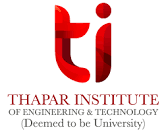
Thapar Institute of Engineering and Technology
The Thapar Institute of Engineering and Technology (TIET) is one of India's oldest and finest educational institutions, which provides a steady source of highly skilled talent to the nation as well as overseas. Founded in 1956, TIET, located in Patiala, has been a pioneer in engineering education, research and innovation. The TIET community involves ingenious minds solvers who are eager to make the world a better place to live in with their innovative techniques and discoveries.Rated amongst the top ranked innovation-driven private universities and technical institutes in India, the Thapar Institute of Engineering and Technology was accredited with an 'A+' grade by the National Assessment and Accreditation Council (NAAC).
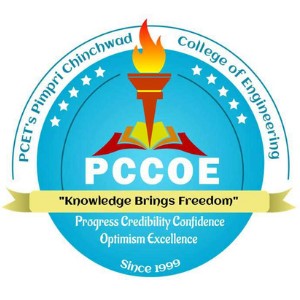
Pimpri Chinchwad College of Engineering
Pimpri Chinchwad College of Engineering (PCCoE) is one of the best engineering colleges in Pune, India. Established in 1999, it is nurtured and managed by the Pimpri Chinchwad Education Trust (PCET).
PCCoE provides the most accurate professional environment for engineering and management students in terms of academics, industry oriented trainings, sports, co-curricular and extracurricular activities, cultural activities and various competitions, to create true aesthetically sensitive, socially committed and technologically competent engineers and management professionals.


